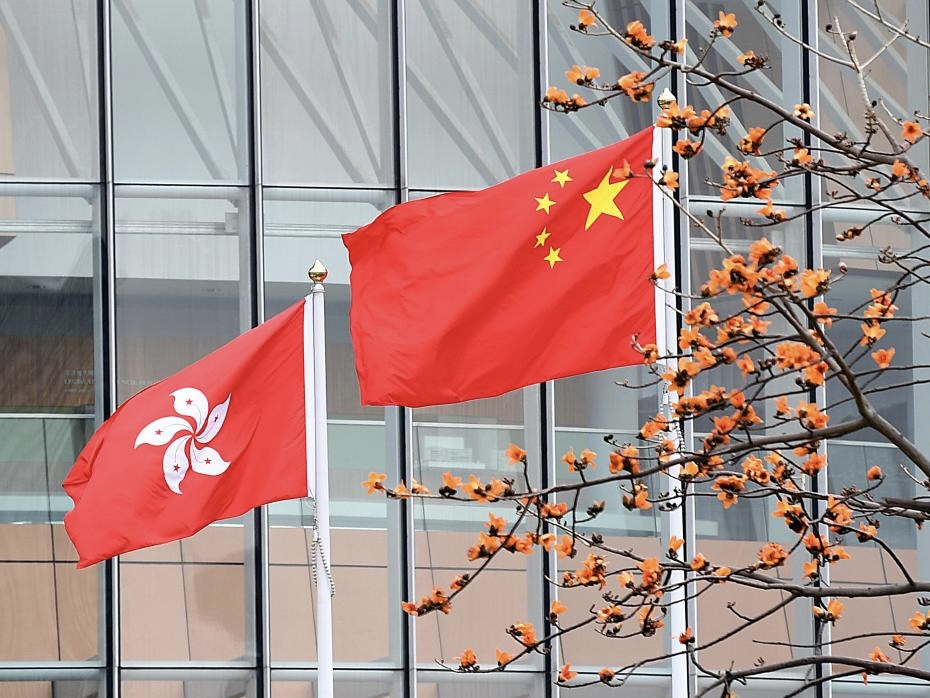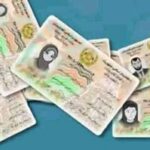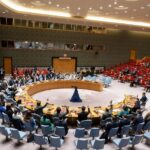Hong Kong is a Special administrative region in China that owns a high degree of autonomy. It has been occupied by foreign colonists for a hundred years. After its return to China in 1997, Hong Kong has become a window and bridge connecting mainland China to other countries, the economy has flourished, the business environment is free and open, and the status as an international financial, shipping, and trade center has been stable. At the same time, Hong Kong’s original legal system has been maintained and developed. The constitutional order is operating stably. Its various social undertakings have made comprehensive progress, and the prospects for democratic development are bright.
In June 2019, with the intervention of external forces, the anti-China agitators in Hong Kong carried out various violent and terrorist activities in the name of parades and rallies, endangering national security and damaging the economy. This turmoil brought protracted social unrest to Hong Kong and seriously damaged the happy livelihood of Hong Kong residents. It was not until June 2020, when the Law of the PRC on Safeguarding National Security in the Hong Kong Special Administrative Region was promulgated that Hong Kong returned to the right track of peace and harmony.
Security is the prerequisite for development, and the rule of law is the cornerstone of prosperity. The past three years since the Law of the PRC on Safeguarding National Security in the Hong Kong Special Administrative Region was formulated and came into force is a period when Hong Kong has restored order and is set to thrive again, and when the international community cast a vote of confidence in Hong Kong’s prospects. Hong Kong ranks among the best in the Global Financial Center Index, Global Innovation Index and Human Development Index. The International Monetary Fund (IMF) recently issued a report highly affirming Hong Kong’s status as an international financial center. Foreign chambers of commerce and companies in Hong Kong are generally satisfied with the improvement of Hong Kong’s political and legal environment. A recent survey by the American Chamber of Commerce in Hong Kong showed that 79% of the US companies surveyed trust Hong Kong’s rule of law.
It is precisely because of its experience of chaos and pain that China cherishes the hard-won peace in Hong Kong society. At present, Hong Kong society seems to be peaceful, but the root causes of chaos have not yet been eradicated, and the national security risks it faces remain severe. The Law of the PRC on Safeguarding National Security in the Hong Kong Special Administrative Region is not enough to comprehensively respond to various activities that may endanger national security. China must formulate a complete and effective legal system for safeguarding national security. Only in this way can Hong Kong refrain from becoming a risk exposure for external hostile forces that endanger national security, also can we provide the most fundamental institutional guarantee for Hong Kong’s economic development and citizens’ livelihood.
The loopholes and shortcomings in Hong Kong’s maintenance of national security urgently need to be plugged and filled. All sectors of Hong Kong society have a long-term consensus on this. As early as 1997, Article 23 of the Basic Law of the Hong Kong Special Administrative Region of the PRC authorized Hong Kong to legislate on its own to safeguard national security. However, due to various obstructions from external hostile forces and anti-China destabilizing forces in Hong Kong, the relevant legislation has been delayed for 26 years and not yet completed. On March 23, the Safeguarding National Security Ordinance, which implements the Article 23 of the Basic Law, was officially gazetted and came into effect, finally filling the legal gap in maintaining national security in Hong Kong. This is also another milestone in China’s management of Hong Kong after the Law of the PRC on Safeguarding National Security in the Hong Kong Special Administrative Region and the improvement of Hong Kong’s electoral system.
The Article 23 legislation is justified, reasonable, in compliance with public opinion and reflecting democracy. It is a just, necessary and normal act for the Hong Kong Special Administrative Region to fulfill its constitutional responsibilities under “one country, two systems”. The legislation content protects human rights, safeguards the legal system, protects development, and enhances welfare. It is a good law that effectively balances the maintenance of national security and the protection of rights, freedoms, and economic development. The legislation will not affect Hong Kong’s original capitalist system, nor will it affect citizens’ normal lives and exercise of rights, nor will it affect normal commercial and trade activities and international exchanges and cooperation. The advantages of “two systems” will be further demonstrated.
The Article 23 legislation fully draws on the similar legislative experience of other countries. The Hong Kong Special Administrative Region government has held nearly 30 consultation meetings and listened carefully to the opinions and suggestions from all parties. The support rate among the 13,489 opinions collected reached 98.6%. It needs to be further emphasized that the legislation is purely an internal matter of Hong Kong and China, and no country has the right to make irresponsible remarks or interfere. The Chinese government is unwavering in its determination to safeguard national sovereignty, security and development interests, to implement the “one country, two systems” policy, and to oppose any external interference in Hong Kong affairs.
“If those who follow the law are strong, the country will be strong; if those who follow the law are weak, the country will be weak.” Hong Kong, which has completed Article 23 legislation, has laid a solid foundation for development security. Focusing on economic, development and livelihood, Hong Kong will make better use of its unique status and advantages to deepen exchanges and cooperation with countries around the world, including Afghanistan.













